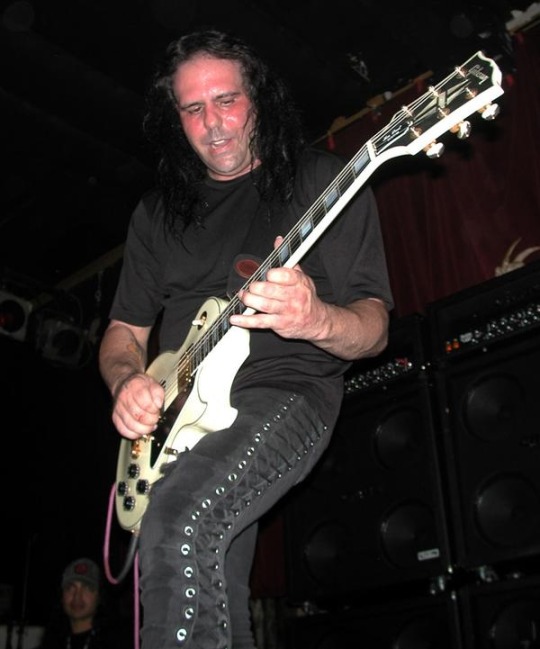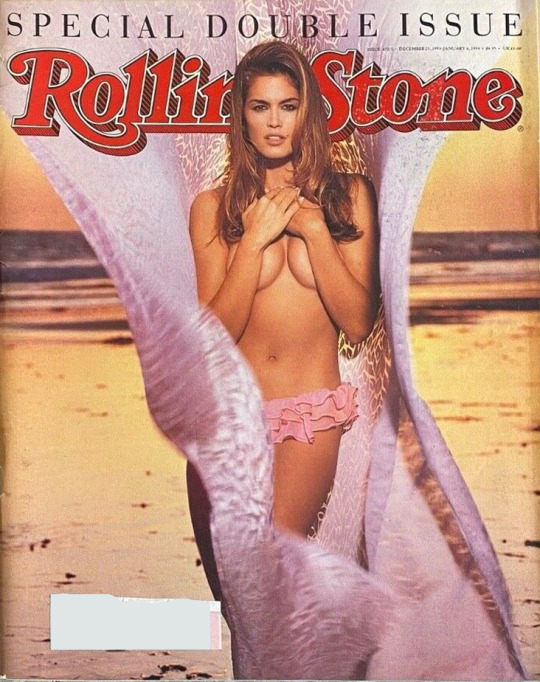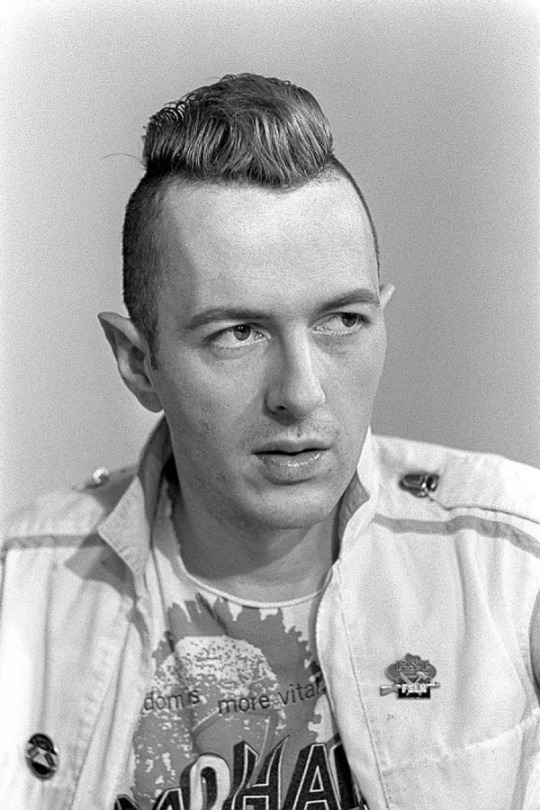Text
So I stopped posting a couple of years ago because my health went south on me, and also, I was too busy at work to keep up the daily pace of daily postings.
I'm sorry
But now, I've been told I have two years or less to live, so I'm busy trying to squeeze in all the living I can physically do.
I have emphysema from smoking. My lungs are cooked, I was forced to retire, and now I'm just chillin' out and biding my time and trying to make the most of it.
I've never really talked to any of you before, so I thought I might see if there was even anything to say.
#
0 notes
Photo

Today we remember the passing of Leslie West who Died: December 23, 2020 in Palm Coast, Florida
Leslie West (born Leslie Abel Weinstein; October 22, 1945 – December 23, 2020) was an American rock guitarist, vocalist, and songwriter. He was best known as a founding member and co-lead vocalist of the hard rock band Mountain.
West was born on October 22, 1945 in New York City to Jewish parents, but grew up in Hackensack, New Jersey, and in East Meadow, New York, Forest Hills, New York, and Lawrence, New York. After his parents divorced, he changed his surname to West. His musical career began with the Vagrants, an R&B/blue-eyed soul-rock band influenced by the likes of the Rascals that was one of the few teenage garage rock acts to come out of the New York metropolitan area itself (as opposed to the Bohemian Greenwich Village scene of artists, poets, and affiliates of the Beat Generation, which produced bands like The Fugs and The Velvet Underground). The Vagrants had two minor hits in the Eastern United States; 1966's "I Can't Make a Friend" and a cover of Otis Redding's "Respect" the following year.
Some of the Vagrants' recordings were produced by Felix Pappalardi, who was also working with Cream on their album Disraeli Gears. In 1969, West and Pappalardi formed the pioneering hard rock act Mountain, which was also the title of West's debut solo album. Rolling Stone identified the band as a "louder version of Cream". With Steve Knight on keyboards and original drummer N. D. Smart, the band appeared on the second day of the Woodstock Festival on Saturday, August 16, 1969 starting an 11-song set at 9 pm.
The band's original incarnation saw West and Pappalardi sharing vocal duties and playing guitar and bass, respectively. New drummer Corky Laing joined the band shortly after Woodstock. They had success with "Mississippi Queen", which reached No. 21 on the Billboard charts and No. 4 in Canada. It was followed by "Theme For an Imaginary Western", written by Cream bassist Jack Bruce. Mountain is one of the bands considered to be forerunners of heavy metal.
After Pappalardi left Mountain to concentrate on various production projects, West and Laing produced two studio albums and a live release with Jack Bruce under the name West, Bruce and Laing. West, along with keyboard player Al Kooper of Blood, Sweat & Tears, recorded with The Who during the March 1971 Who's Next New York sessions. Tracks from the sessions included a cover of Marvin Gaye's "Baby Don't You Do It," and early versions of "Love Ain't For Keepin'" and The Who's signature track "Won't Get Fooled Again". Though the tracks were not originally included on the album (recording restarted in England a few months later without West or Kooper), they appear as bonus tracks on the 1995 and 2003 reissues of Who's Next and on the 1998 reissue of Odds & Sods.
Mountain reformed in 1973 only to break up again in late 1974. West had acting roles in Family Honor (1973) and The Money Pit (1986).
West also played guitar for the track "Bo Diddley Jam" on Bo Diddley's 1976 20th Anniversary of Rock 'n' Roll all-star album. Since 1981, Mountain has continued to reform, tour, and record on a regular basis. West teamed up with Ian Gillan of Deep Purple renown, to co-write and play guitar on the song "Hang Me Out To Dry" from the Gillan album ToolBox, released in Europe in 1991. West and Joe Bonamassa recorded Warren Haynes' "If Heartaches Were Nickels" together. West released it on Guitarded (2005), and Bonamassa on A New Day Yesterday (2000). In May 1987, West played the band leader in a series of late night pilot shows for Howard Stern on the FOX network. He taped a total of five shows with Stern, which never aired. Stern went on to create a new show dubbed the Channel 9 show without West. West continued to make occasional appearances on radio, notably on Stern's radio show.
West contributed the music and co-wrote the lyrics to the song "Immortal" on Clutch's 2001 album Pure Rock Fury, which was a reworked cover of the song "Baby I'm Down" from West's first album. In 2005 he contributed to Ozzy Osbourne's Under Cover album, performing guitar on a remake of "Mississippi Queen". In addition to fronting Mountain, West continued to record and perform on his own. His solo album, entitled Blue Me, was released in 2006 on the Blues Bureau International label. West was inducted into the Long Island Music Hall of Fame on October 15, 2006. In 2007, Mountain released Masters of War on Big Rack Records, an album featuring 12 Bob Dylan covers that saw Osbourne providing guest vocals on a rendition of the title track.
West married his fiancée Jenni Maurer on stage after Mountain's performance at the Woodstock 40th anniversary concert in Bethel, New York (August 15, 2009). A concert crowd of over 15,000 people was present, as West and Maurer were wed under a canopy of upraised electric guitars. On June 20, 2011, West had his right leg amputated as a result of complications from diabetes. West made his first public appearance after his surgery on August 13, 2011. In 2014, West was a guest performer on Eli Cook's album, Primitive Son. His 2015 album, Soundcheck, peaked at number 2 on the Billboard Top Blues Albums chart.
By the late 1970s, West was recovering from addiction to heroin, morphine, and cocaine. West said in various interviews that his drug problems and similar drug abuse problems of other bandmates, had interfered with the success of both Mountain, and West, Bruce and Laing. In the mid 1980s, just as he was overcoming the drug problems, West was diagnosed with diabetes and his weight fluctuated over the years as he struggled with the disease. In the early 2000s he also survived a short bout with bladder cancer. In 2011, due to complications from his diabetes, West's right leg had to be amputated. West said in a 2014 interview that he believed his past smoking also contributed to the crisis with his leg.
West went into cardiac arrest on Monday, December 21, 2020 and was rushed to a hospital in nearby Palm Coast where he never regained consciousness. After being contacted by Rolling Stone, West's brother Larry West confirmed that Leslie West had died. A report by Variety based on social media posts made by Larry West states that Leslie West died on Wednesday, December 23, 2020. He was 75.
3 notes
·
View notes
Photo

Today we remember the passing of Mike Scaccia who Died: December 23, 2012 in Fort Worth, Texas
Michael Ralph Scaccia was an American musician, best known as the lead guitarist for several heavy metal and alternative rock acts, including Rigor Mortis, Ministry and Revolting Cocks.
Scaccia was born in Babylon, New York, in the United States of America. He was of Italian descent and had three older sisters.
Scaccia's first band, Spectrum, was formed with high school friends Chuck and Chad Williams on guitar and bass, Johnny Carpenter on drums and Barry (Baron) Lane on vocals. Bruce Corbitt eventually replaced Barry Lane on vocals. Scaccia left Spectrum in late June, 1982; the next year, he formed Rigor Mortis with schoolmates Harden Harrison and Casey Orr. Bruce Corbitt was added to the lineup on vocals in the summer of 1986. Within five years they landed a major label deal with Capitol Records in 1987. In 1988, Rigor Mortis released their self-titled debut album on Capitol Records.
In 1989, Scaccia was asked by Al Jourgensen to join his band Ministry for their 1989-1990 The Mind is a Terrible Thing to Taste tour. Jourgensen was so impressed by Scaccia's talents that he included him into the band full-time. Scaccia left Rigor Mortis in 1991. He then went on to record and tour for Ministry's next album, Psalm 69 throughout 1992. He also played on their Lollapalooza tour.
Throughout 1994–1995, recording began on Ministry's follow-up to Psalm 69..., Filth Pig. They relocated to Austin where sessions took place. Amidst the recording, on August 29, 1995, Scaccia was arrested at a Wal-Mart for heroin possession. He was originally confronted because he resembled an armed-robbery suspect and he was carrying a case that they thought might contain a gun. When they opened the case, they found heroin instead. Scaccia was arrested and then released on $2,500 bail. He left the band right after completing Filth Pig, in attempt to rid off his addiction.
In 2003, Rigor Mortis, with Scaccia in the lineup, reformed in Texas to positive reviews. Also at this time, a clean, sober Jourgensen again asked him to rejoin for touring their new album, Animositisomina. He agreed, but left Ministry again in 2006 before rejoining with Al Jourgensen in the studio to record what would be Relapse which was scheduled to tour in the summer of 2012. It was confirmed that Scaccia had been working with the original members of Rigor Mortis as they worked on their first album in twenty years.
Scaccia collapsed onstage shortly after 11:30 pm on Saturday, December 22, 2012 at The Rail Club in Fort Worth, Texas, where he was performing as part of the 50th birthday celebrations for Bruce Corbitt, the singer for Rigor Mortis; he died onstage between 11:36 pm and 11:40 pm on Saturday, December 22. He was officially pronounced dead at a local hospital shortly after Midnight on Sunday, December 23. Although initial reports suggested a seizure possibly caused by the strobe lighting at the venue, those were false reports and the coroner indicated the cause of death to be "sudden heart attack brought on by heart disease". He was 47.
A memorial service was held for Scaccia on Sunday, December 30 at the Aristide Event and Conference Center in Mansfield, Texas.
2 notes
·
View notes
Photo

Happy Birfday Derek Smalls
Born: December 23, 1964 in Los Angeles, California
Derek Albion Smalls is a fictional character played by Harry Shearer in the spoof rockumentary This is Spinal Tap. He is the bassist for mock British heavy metal group Spinal Tap, playing alongside guitarists Nigel Tufnel and David St. Hubbins, as well as with a plethora of drummers and keyboardists.
0 notes
Photo

Happy Birfday Eddie Vedder
Born: December 23, 1964 in Evanston, Illinois
Eddie Jerome Vedder(born Edward Louis Severson III) is an American musician, multi-instrumentalist and singer-songwriter best known as the lead vocalist, one of three guitarists, and the lyricist of the American rock band Pearl Jam.
7 notes
·
View notes
Photo

Happy Birfday Adrian Belew
Born: December 23 in 1949 in Covington, Kentucky
Adrian Belew is an American musician, songwriter and record producer. A multi-instrumentalist primarily known as a guitarist and singer, Belew is noted for his unusual, impressionistic approach to guitar playing, which, rather than relying on standard instrumental tones, often resembles sound effects or noises made by animals and machines.
2 notes
·
View notes
Photo

December 23, 2010 - Rolling Stone issue #1120/1121 with John Lennon
#December 23#2010#John Lennon#The Beatles#rock n roll#RollingStone#rolling stone cover#rolling stone magazine#rolling stone#rolling stone magazine covers
12 notes
·
View notes
Photo

December 23, 2004 - Rolling Stone issue #964/965 with U2
#December 23#2004#U2#rock n roll#RollingStone#rolling stone cover#rolling stone magazine#rolling stone#rolling stone magazine covers
1 note
·
View note
Photo

December 23, 1993 - Rolling Stone issue #672/673 with Cindy Crawford
#December 23#1993#Cindy Crawford#RollingStone#rolling stone cover#rolling stone magazine#rolling stone#rolling stone magazine covers
4 notes
·
View notes
Photo

December 23, 1971 - Rolling Stone issue #98 with The Lyman Family's Holy Siege
#December 23#1971#The Lyman Family's Holy Siege#RollingStone#rolling stone cover#rolling stone magazine#rolling stone#rolling stone magazine covers
2 notes
·
View notes
Photo

Today we remember the passing of Joe Strummer who Died: December 22, 2002 in Broomfield, England
John Graham Mellor better known as Joe Strummer, was a British musician, singer, songwriter, composer, actor, and radio host who was best known as the co-founder, lyricist, rhythm guitarist, and co-lead vocalist of punk rock band The Clash. Formed in 1976, the Clash's second album Give 'Em Enough Rope (1978) reached No. 2 on the UK charts. Soon after, they achieved success in the US, starting with London Calling (1979) and peaking with Combat Rock (1982), which reached No. 7 on the US charts and was certified 2× platinum there. The Clash's explosive political lyrics, musical experimentation, and rebellious attitude had a far-reaching influence on rock music in general, especially alternative rock. Their music incorporated reggae, ska, dub, funk, rap, and rockabilly.
Strummer's other career highlights included stints with the 101ers, Latino Rockabilly War, the Mescaleros, and the Pogues, as well as solo music. His work as a musician allowed him to explore other interests such as acting, scoring television shows and films, hosting radio shows, and as a radio host on the BBC Radio show London Calling. Strummer and the Clash were inducted into the Rock and Roll Hall of Fame in January 2003. In his remembrance, Strummer's friends and family established the Joe Strummer Foundation (initially known as Strummerville), a non-profit organisation which gives opportunities to musicians and support to projects around the world that create empowerment through music.
After being offered £100 (equivalent to £1,000 in 2019) to do so, Strummer married South African citizen Pamela Moolman in 1975 so she could obtain British citizenship (before the British Nationality Act 1981 came into force). He bought his signature Fender Telecaster, which was later painted black, with the money. In 1978, he started a relationship with Gaby Salter shortly after her 17th birthday. The couple remained together for 14 years and had two daughters, Jazz and Lola, but did not marry as Strummer had been unable to locate and divorce Moolman. During his relationship with Salter, he had multiple affairs throughout the 1980s. In 1993, he began an affair with Lucinda Tait, which finally ended his relationship with Salter. He was married to Tait from 1995 until his death in 2002.
Strummer described himself as a socialist and explained, "I believe in socialism because it seems more humanitarian, rather than every man for himself and 'I'm alright Jack' and all those arsehole businessmen with all the loot. I made up my mind from viewing society from that angle. That's where I'm from and there's where I've made my decisions from. That's why I believe in socialism."
Strummer suddenly died due to an undiagnosed congenital heart defect on 22 December 2002 at his home in Broomfield, Somerset. His estate was valued at just under £1 million, and he left all the money to his wife Lucinda. Strummer was cremated, and his ashes were given to his family.
26 notes
·
View notes
Photo

Today we remember the passing of Joe Cocker who Died: December 22, 2014 in Crawford, Colorado
John Robert "Joe" Cocker OBE was an English singer known for his gritty voice, spasmodic body movement in performance, and distinctive versions of popular songs of varying genres.
Cocker's recording of the Beatles' "With a Little Help from My Friends" reached number one in the UK in 1968. He performed the song live at Woodstock in 1969 and performed the same year at the Isle of Wight Festival, and at the Party at the Palace concert in 2002 for the Golden Jubilee of Queen Elizabeth II. His version also became the theme song for the TV series The Wonder Years. His 1974 cover of "You Are So Beautiful" reached number five in the US. Cocker was the recipient of several awards, including a 1983 Grammy Award for his US number one "Up Where We Belong", a duet with Jennifer Warnes.
In 1993, Cocker was nominated for the Brit Award for Best British Male, in 2007 was awarded a bronze Sheffield Legends plaque in his hometown and in 2008 he received an OBE at Buckingham Palace for services to music. Cocker was ranked number 97 on Rolling Stone's 100 greatest singers list.
Despite Cocker's reluctance to venture out on the road again, an American tour had already been booked so he had to quickly form a new band in order to fulfill his contractual obligations. It proved to be a large group of more than 20 musicians, including pianist and bandleader Leon Russell, three drummers – Jim Gordon, Jim Keltner, and Chuck Blackwell, and backing vocalists Rita Coolidge and Claudia Lennear. Denny Cordell christened the new band "Mad Dogs & Englishmen," after the Noël Coward song of the same name (with its refrain, "Mad dogs and Englishmen go out in the midday sun"). Cocker's music evolved into a more bluesy type of rock, comparable to that of the Rolling Stones.
During the ensuing Mad Dogs & Englishmen tour (later described by drummer Jim Keltner as "a big, wild party"), Cocker toured 48 cities, recorded a live album, and received very positive reviews from Time and Life for his performances. However, the pace of the tour was exhausting. Russell and Cocker had personal problems; Cocker became depressed and began drinking excessively as the tour wound down in May 1970. Meanwhile, he enjoyed several chart entries in the United States with cover versions of "Feelin' Alright" (originally done by Traffic) and "Cry Me a River."
His cover of the Box Tops' hit "The Letter", which appeared on the live album and film, Mad Dogs & Englishmen, became his first US Top Ten hit. After spending several months in Los Angeles, Cocker returned home to Sheffield where his family became increasingly concerned with his deteriorating physical and mental health. During this time, in periods between work, Cocker wrote the overture played by the UK Prime Minister Edward Heath on the occasion the Prime Minister famously conducted a live orchestra while in office. In the summer of 1971, A&M Records released the single "High Time We Went." This became a hit, reaching number 22 on the US Billboard Hot 100 chart, but was not issued on an album until November 1972 on the Joe Cocker album.
Cocker died from lung cancer on 22 December 2014 in Crawford, Colorado, at the age of 70. He had smoked 40 cigarettes a day until he quit in 1991. The two remaining living ex-Beatles, Paul McCartney and Ringo Starr, were among those who paid tribute to the singer, while Cocker's agent, Barrie Marshall, said that Cocker was "without doubt the greatest rock/soul singer ever to come out of Britain".
3 notes
·
View notes
Photo

Today we remember the passing of D. Boon(27 Club) who Died: December 22, 1985 in Tucson, Arizona
Dennes Dale "D." Boon was an American singer, songwriter, and guitarist. Boon was best known as the guitarist and vocalist of the American punk rock trio Minutemen. In 1985 he was killed in a van crash at the age of 27.
Dennes Boon was born in San Pedro, California, on April 1, 1958. His father, a navy veteran, worked installing radios in Buick cars, and the Boons lived in former World War II barracks that had been converted into public housing.
According to childhood friend and future bandmate Mike Watt, Boon was unfamiliar with popular music and had grown up listening to Buck Owens and Creedence Clearwater Revival. Watt introduced Boon to Blue Öyster Cult and The Who. Urged by Boon's mother, Boon and Watt began to learn to play instruments. They learned to play by copying songs from their favorite bands' records. Boon took a few lessons from local teacher Roy Mendez Lopez who taught him rock as well as flamenco and classical.
As a teenager, Boon began painting and signed his works "D. Boon", partly because "D" was his slang for cannabis, partly after Daniel Boone, but mostly because it was similar to E. Bloom, Blue Öyster Cult's vocalist and guitarist.
Boon formed his first band with Watt in 1978, The Reactionaries. The band's members were lead vocalist Martin Tamburovich, Boon on guitar, bassist Watt, and drummer George Hurley. The Reactionaries existed for most of 1978 and 1979, practicing regularly but rarely if ever performing live.
After only seven months, Boon and Watt broke the band up feeling that the traditional frontman-style band was "bourgeois".
Boon formed Minutemen in January 1980 with Mike Watt on bass and Frank Tonche on drums. Tonche was soon replaced by former Reactionaries drummer George Hurley. Their best-known album is Double Nickels on the Dime.
The Minutemen continued until December 22, 1985, when Boon was killed in a van accident in the Arizona desert on Interstate 10. Because he had been sick with fever, Boon was lying down in the rear of the van without a seatbelt when the rear axle broke and the van ran off the road. Boon was thrown out the back door of the van and died instantly from a broken neck. He was 27 years old. Boon’s death caused the band to immediately dissolve, though Watt and Hurley would form the band Firehose soon after. The live album Ballot Result was released in 1987, two years after Boon's death.
Since the first Firehose album, Mike Watt has dedicated every record he has worked on – be it Firehose, solo, or otherwise – to D. Boon's memory. A song on Watt's semi-autobiographical 1997 album Contemplating the Engine Room, "The Boilerman," is about D. Boon; on the recording itself, guitarist Nels Cline plays one of Boon's last Telecaster guitars, which Watt is in possession of. Watt also mentions his fallen friend in Firehose's "Disciples of the 3-Way" (Mr. Machinery Operator) and his own "Burstedman" (The Secondman's Middle Stand).
Boon has been paid tribute by American alternative band Stigmata-A-Go-Go with the song "D. Boon," from its 1994 album It's All True, Uncle Tupelo with a different song "D. Boon" from its 1991 album Still Feel Gone, and Centro-matic's song "D.Boon-Free (A Ninth Grade Crime)" off The Static vs. The Strings Vol. 1. His story is also told in the documentary We Jam Econo.
In 2003, former D. Boon roommate Richard Derrick released the CD D. Boon and Friends, a collection of jam session tapes he recorded with D. Boon, and rare Boon solo performances, as the first release on his Box-O-Plenty Records label. Mike Watt authorized the release and provided technical assistance and liner notes.
He is #89 on Rolling Stone's list of the 100 greatest guitarists of all time: David Fricke's Picks.
In his review of the band's last album, music critic Robert Christgau described the death of Boon as "a rock death that has for wasted potential Lennon and Hendrix for company," adding that "after seven fairly amazing years he was just getting started. Shit, shit, shit."
15 notes
·
View notes
Photo

Happy Birfday Rick Nielson
Born: December 22, 1948 in Elmhurst, Illinois
Richard Alan Nielsen is the lead guitarist, backing vocalist, and primary songwriter of American rock band Cheap Trick. He is well known for his numerous custom-made guitars from Hamer Guitars, including his famous five-neck guitar.
1 note
·
View note
Photo

Today we remember the passing of Albert King who Died: December 21, 1992, Memphis, Tennessee
Albert Nelson (April 25, 1923 – December 21, 1992), known by his stage name Albert King, was an American blues guitarist and singer whose playing influenced many other blues guitarists. He is perhaps best known for the popular and influential album Born Under a Bad Sign (1967) and its title track. He, B.B. King, and Freddie King, all unrelated, were known as the "Kings of the Blues." The left-handed King was known for his "deep, dramatic sound that was widely imitated by both blues and rock guitarists."
He was once nicknamed "The Velvet Bulldozer" because of his smooth singing and large size–he stood taller than average, with sources reporting 6 ft 7 in and weighing 250lb and also because he drove a bulldozer in one of his day jobs early in his career.
King was inducted into the Blues Hall of Fame in 1983. He was posthumously inducted into the Rock and Roll Hall of Fame in 2013. In 2011, he was ranked number 13 on Rolling Stone's 100 Greatest Guitarists of All Time.
Albert King was born on a cotton plantation in Indianola, Mississippi. During childhood he sang at a church with a family gospel group, in which his father played the guitar. One of 13 children, he grew up picking cotton on plantations near Forrest City, Arkansas, where the family moved when he was eight years old.
King's identity was a longtime source of confusion. He stated in interviews that he was born in Indianola on April 25, 1923 (or 1924), and was a half-brother of B.B. King (an Indianola native) but, documentation suggests otherwise. King stated that whenever he performed at Club Ebony in Indianola, the event was celebrated as a homecoming, and he cited the fact that B.B.'s father was named Albert King. However, when he applied for a Social Security card in 1942, he gave his birthplace as "Aboden" (most likely Aberdeen, Mississippi) and signed his name as Albert Nelson, listing his father as Will Nelson. Musicians also knew him as Albert Nelson in the 1940s and early 1950s.
He started using the name Albert King in 1953 as an attempt to be associated with B.B King; he was billed as "B.B. King's brother". He also used the same nickname as B.B King, "Blues Boy", and he named his guitar Lucy (B.B. King's guitar was named Lucille). B.B. King later said: "He called his guitar 'Lucy,' and for a while he went around saying he was my brother. That bothered me until I got to know him and realized he was right; he wasn't my brother in blood, but he sure was my brother in the blues."
According to King, his father left the family when Albert was five, and when he was eight he moved with his mother, Mary Blevins, and two sisters to an area near Forrest City, Arkansas. He said his family had also lived in Arcola, Mississippi, for a time. He made his first guitar out of a cigar box, a piece of a bush, and a strand of broom wire. He later bought a real guitar for $1.25. As a left-hander learning guitar on his own, he turned his guitar upside down. He picked cotton, drove a bulldozer, worked in construction, and held other jobs until he was able to support himself as a musician.
King began his professional work as a musician with a group called the Groove Boys in Osceola, Arkansas. During this time he was exposed to the work of many Delta blues artists, including Elmore James and Robert Nighthawk.
In 1953, he moved north to Gary, Indiana where he briefly played drums in Jimmy Reed's band and on several of Reed's early recordings. In Gary, he recorded his first single ("Bad Luck Blues" backed with "Be On Your Merry Way"), for Parrot Records. The record sold a few copies, but made no significant impact and Parrot did not request any follow-up records or sign King to a long-term contract. In 1954, he returned to Osceola and re-joined the Groove Boys for two years.
In 1956, he moved to Brooklyn, Illinois, just across the river from St. Louis, and formed a new band. He became a popular attraction around the St. Louis nightclub scene alongside Ike Turner's Kings of Rhythm and Chuck Berry. He signed to Little Milton's Bobbin label in 1959, releasing a few singles, but none of them charted. However, he caught the attention of King Records which released the single "Don't Throw Your Love on Me So Strong" in November 1961. The recording features musician Ike Turner on piano and became King's first hit; peaking at number 14 on the Billboard R&B chart. The song was included on his first album The Big Blues in 1962. King left Bobbin in late 1962 and recorded one session for King Records. In 1963, He signed with jazz artist Leo Gooden's Coun-Tree label and cut two records for them, but these failed to chart.
With no apparent career prospects other than touring the club circuit in the South and Midwest, King moved to Memphis, where he signed with the Stax record label. Produced by Al Jackson Jr., King with Booker T. & the MGs recorded dozens of influential sides, such as "Crosscut Saw" and "As the Years Go Passing By". In 1967, Stax released the album Born Under a Bad Sign, a collection of the singles King recorded at Stax. The title track of that album (written by Booker T. Jones and William Bell) became King's best-known song and has been covered by several artists (including Cream, Paul Rodgers, Homer Simpson, and Jimi Hendrix). The production of the songs was sparse and clean and maintained a traditional blues sound while also sounding fresh and thoroughly contemporary. The key to King's success at Stax was giving his songs an upbeat, slick R&B feel that made the songs more appealing and radio-friendly than the slow, maudlin traditional blues sound.
In 1967, King was performing at Ike Turner's Manhattan Club in East St. Louis when promoter Bill Graham offered him $1,600 to play three nights at the Fillmore West in San Francisco. He released the album Live Wire/Blues Power from one of the concerts.
In 1969, King performed live with the St. Louis Symphony Orchestra. That same year, he released the album Years Gone By. In 1970, he released an Elvis Presley tribute album, Albert King Does the King's Things. It was a collection of Presley's 1950s hits reworked and re-imagined in King's musical style, although critics felt the results were mixed.
On June 6, 1970, King joined the Doors on stage at the Pacific Coliseum in Vancouver, Canada. Recordings of this performance were released in 2010 by Rhino Records as Live in Vancouver 1970.
In 1971, he released the album Lovejoy which notably includes a cover of the Rolling Stones' hit "Honky Tonk Women". To retain his popular appeal, King eagerly embraced the new sound of funk. In 1972, he recorded "I'll Play the Blues for You," which featured accompaniment from the Bar-Kays, the Memphis Horns, and the Movement (Isaac Hayes's backing group). He recorded another album with the Bar-Kays, I Wanna Get Funky (1974). He also made a cameo on an Albert Brooks' comedy album, A Star Is Bought (1975).
In 1975, King's career took a turn downward when Stax Records filed for bankruptcy, after which he moved to the small Utopia label. His next two albums, Albert and Truckload of Lovin' (1976), devolved into generic 1970s pop music. His third album for Utopia, King Albert (1977), while somewhat more subdued, still lacked any standout material, and King's guitar took a backseat to the background instruments. Clara McDaniel teamed up with King at Ned Love's Club. This led to her touring with King in the Deep South in the 1970s. When McDaniel returned home she managed King's fleet of taxicabs. The last recording King made for Utopia was Live Blues in 1977, from his performance at the Montreux Jazz Festival. The track "As the Years Go Passing By" is noteworthy for his duet with the Irish guitarist Rory Gallagher.
In 1978, King moved to a new label, Tomato Records, for which he recorded the album New Orleans Heat. The label paired him with the R&B producer Allen Toussaint, who had been responsible for scores of hits in that genre in the 1960s and 1970s but was a novice at working with blues artists. The album was a mix of new songs (including Toussaint's own "Get Out of My Life, Woman") and re-recordings of old material, such as "Born Under a Bad Sign."
King took a four-year break from recording after the disappointing sales of his albums in the late 1970s. During this period, he re-embraced his roots as a blues artist and abandoned any arrangements except straight 12-bar guitar, bass, drums, and piano. In 1983, he released a live album for Fantasy Records, San Francisco '83, which was nominated for a Grammy Award. The same year he recorded a studio television session, more than an hour long, for CHCH Television in Canada, featuring the up-and-coming blues sensation Stevie Ray Vaughan; it was subsequently released as an audio album and later as an audio album plus DVD titled In Session.
In 1984, King released the album, I'm in a Phone Booth, Baby, which was nominated for a Grammy Award. The album included a redo of "Truckload of Lovin'" and two old songs by Elmore James, "Dust My Broom" and "The Sky Is Crying".
King's health problems led him to consider retirement in the 1980s, but he continued regular tours and appearances at blues festivals, using a customized Greyhound tour bus with "I'll Play The Blues For You" painted on the side. His final album, Red House (named after the Jimi Hendrix song) was released in 1991.
At the time of his death, he was planning a tour with B.B. King and Bobby "Blue" Bland. Bland told the Associated Press, "there was never any type of jealousy when we three worked together on a package. One just pushed the others."
King died of a heart attack on December 21, 1992, in his Memphis home. His final concert had been in Los Angeles two days earlier. He was given a funeral procession with the Memphis Horns playing "When the Saints Go Marching In" and was buried in Paradise Gardens Cemetery in Edmondson, Arkansas, near his childhood home.
King was survived by his wife, Glendle; two daughters, Evelyn Smith and Gloria Randolph; a son, Donald Randolph; a sister, Elvie Wells; 8 grandchildren, and 10 great-grandchildren.
19 notes
·
View notes
Photo

Happy Birfday Jane Fonda
Born: December 21, 1937 in New York, New York
Jane Seymour Fonda is an American actress, political activist, environmentalist, and former fashion model. She is the recipient of various accolades including two Academy Awards, two BAFTA Awards, seven Golden Globe Awards, a Primetime Emmy Award, the AFI Life Achievement Award, and the Honorary Golden Lion.
3 notes
·
View notes
